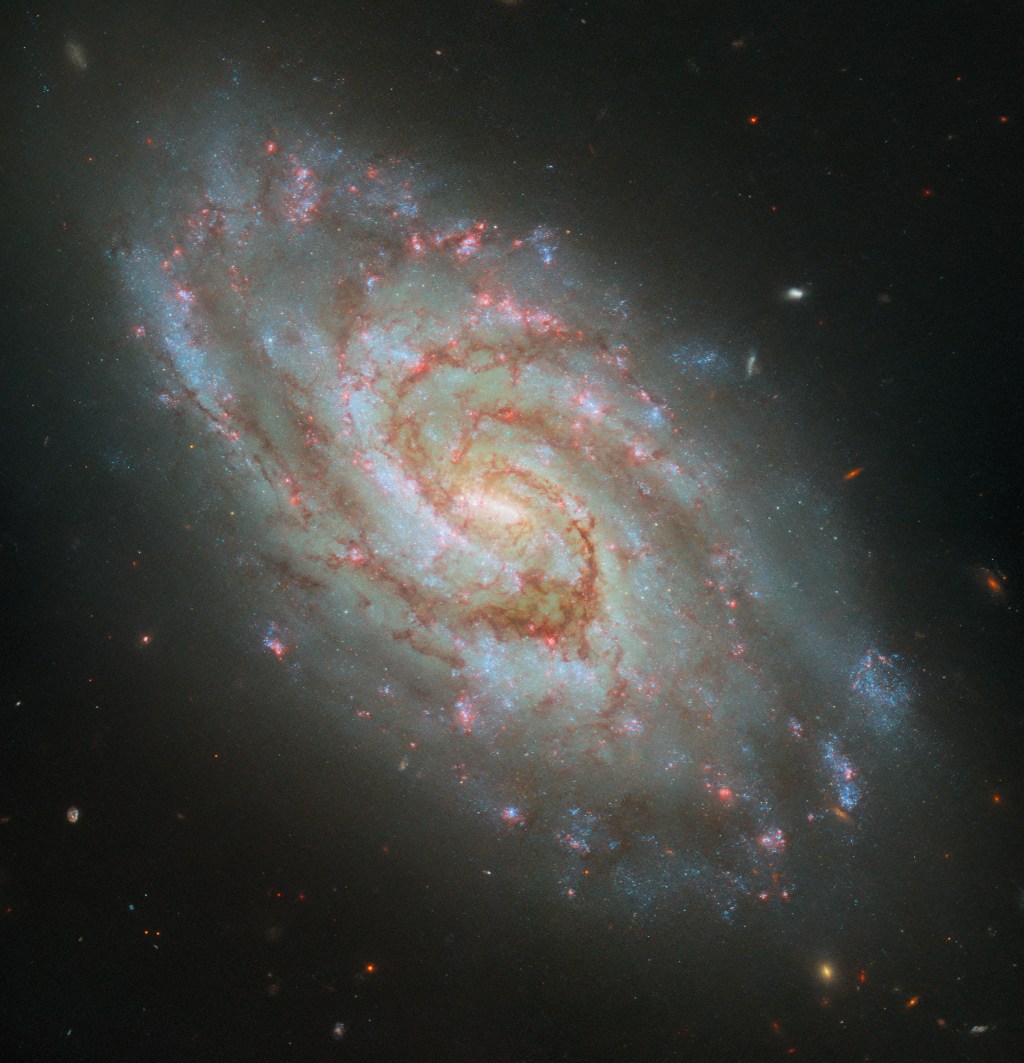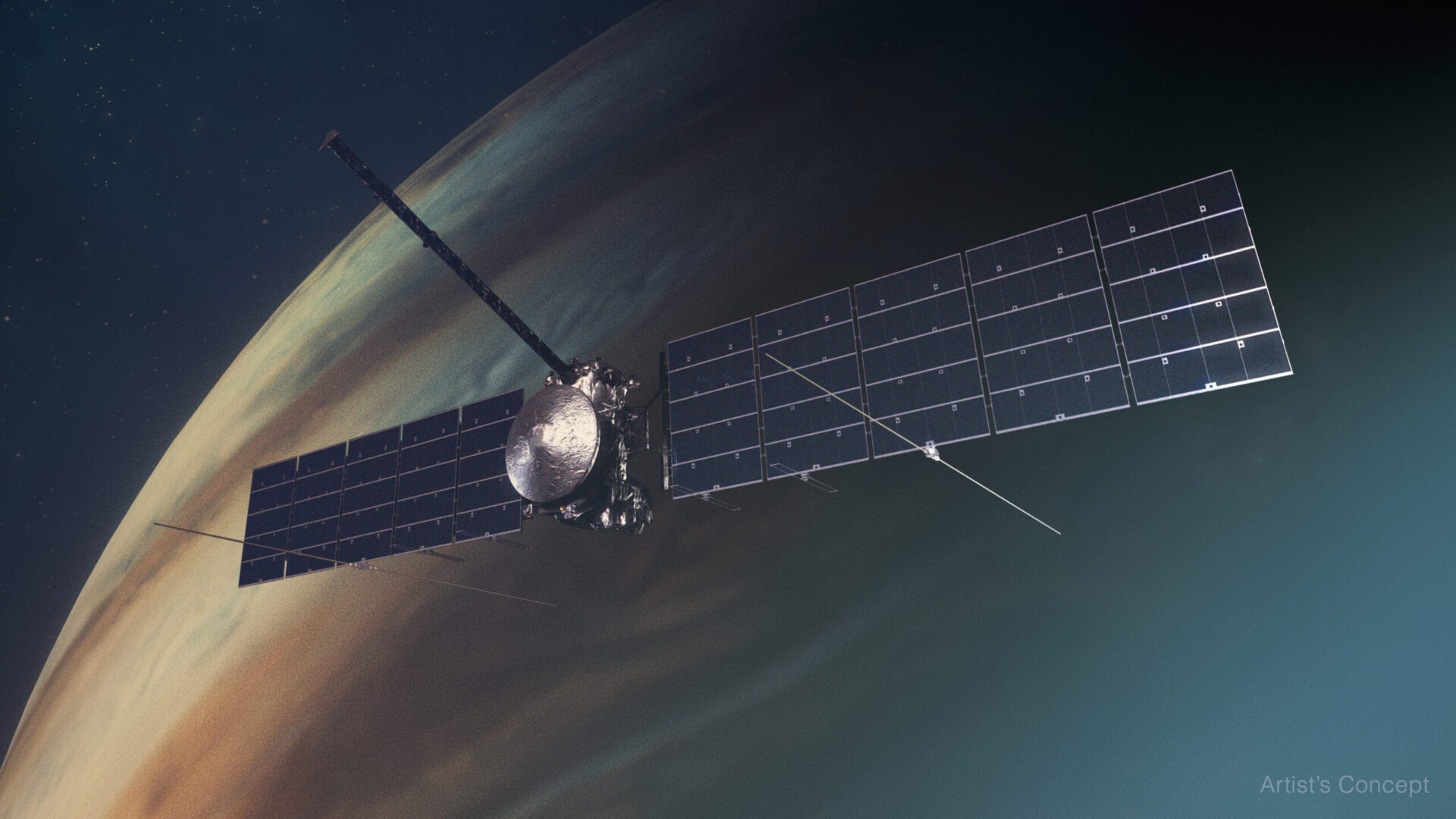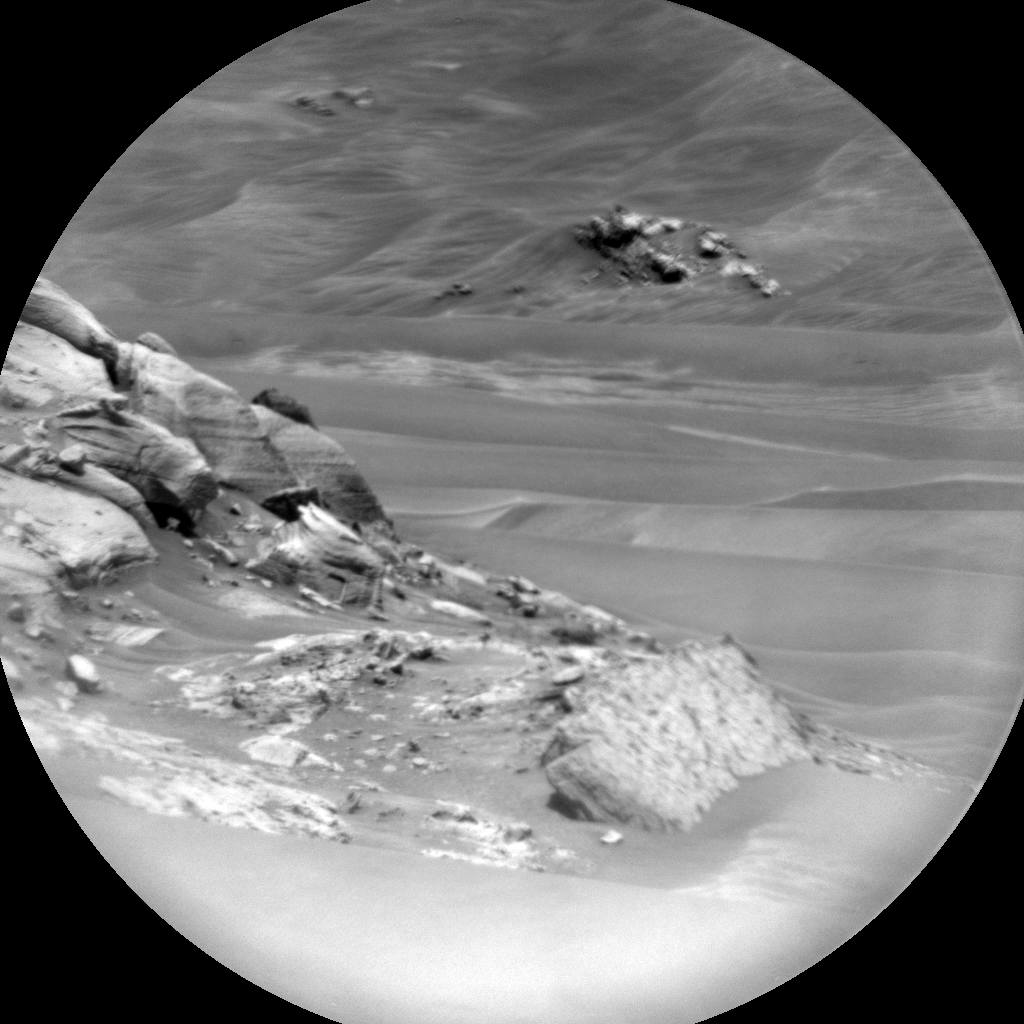*
The data featured in this image come from a program that extends the cooperation among multiple observatories: Hubble, the infrared James Webb Space Telescope, and the Atacama Large Millimeter/submillimeter Array, a ground-based radio telescope. By surveying IC 1954 and over 50 other nearby galaxies in radio, infrared, optical, and ultraviolet light, astronomers aim to fully trace and reconstruct the path matter takes through stars, mapping the interstellar gas and dust in each galaxy. Hubble’s observing capabilities form an important part of this survey: it can capture younger stars and star clusters when they are brightest at ultraviolet and optical wavelengths, and its H-alpha filter effectively tracks emission from nebulae. The resulting dataset will form a treasure trove of research on the evolution of stars in galaxies, which Webb can build upon as it continues its science operations into the future.





No comments! Be the first commenter?